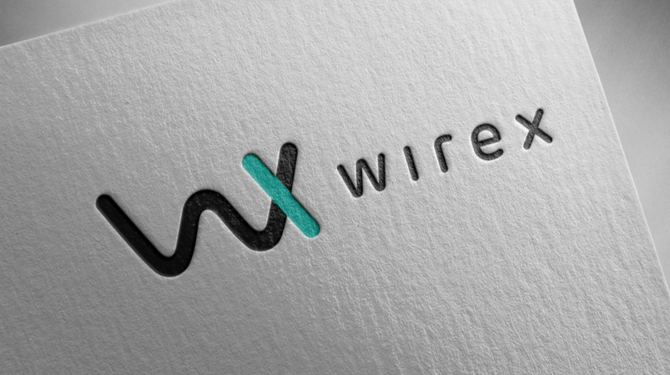Self-driving startup Aurora Innovation has acquired a maker of lidar sensors, widely considered critical to safely deploying self-driving vehicles at scale, in a bid to win the race to commercialise AV technology.
The Silicon Valley-based startup, the CEO of which formerly led the autonomous team at Alphabet’s self-driving unit Waymo, has purchased OURS for an undisclosed amount. All of its 12 employees are set to join Aurora.
Aurora had already purchased a lidar company, Blackmore, in 2019, but is looking to make it more scalable with the acquisition of OURS. Lidar determines variable distance by targeting an object with a laser and measuring the time for the reflected light to return to the receiver. As the light comes back, the direction of, and distance to, whatever those pulses hit are recorded as a point and eventually form a 3D map. It is considered by most companies developing autonomous driving systems as critical to safely deploying self-driving vehicles at scale.
Self-driving systems have traditionally been outfitted with AM lidar, which works by emitting brief light pulses at a fixed frequency. In contrast, FMCW lidar sends out a constant stream of light (continuous-wave) and changes the frequency of that light at regular intervals (frequency-modulated). This allows determination of both the location of objects and precisely measures their velocity.
The lidar developed by OURS is advanced FMCW technology that uses low-power CW laser sources, which developers believe allows it to measure distance with a higher dynamic range and instant velocity. This means it can gauge the speed of the objects coming to or moving away from them.
Last summer Aurora unveiled its ‘FirstLight Lidar’, a sensor based on Blackmore’s technology, which also uses FMCW lidar. But the advantage of OURS’s technology is that it integrates software-defined solid-state beam-steering and coherent transceivers onto a small yet powerful integrated photonic chip when many FMCW developers use big mirrors and other components to provide the field of view, which pushes up the size of the sensors. The chip would also replace unreliable and expensive mechanical parts, increasing its reliability and scalability.
An Aurora spokesperson commented: “We are always on the lookout for how we can make progress as quickly as possible and OURS’s expertise in developing lidar chips adds to the expertise we already have and accelerates our work. Now, as we look to expand our fleet and commercialise our driverless trucks, FirstLight LiDAR must be increasingly scalable – it needs to be smaller and less expensive, but just as powerful.”
Aurora is among a raft of companies acquiring tech firms as part of its push to bring driverless vehicles to the road. Last July, Amazon acquired Zoox – a self-driving startup that specialises in ‘computer vision’ technology – for $1.2bn. This technology sees and processes information from multiple sensors like optical cameras, LiDAR, radar, and GPS, along with artificial intelligence and contextual information to perceive the environment and make decisions. The technology has ‘eyes’ that detect cars on the road, see the colour of traffic lights and track pedestrians. Elon Musk is also a believer in ‘computer vision’ technology and in October 2019 Tesla acquired a computer vision startup called DeepScale to boost its ‘Full Self Driving’ technology.
As to whether lidar can reduce the tension between the need for regulation to prioritise public safety and companies attempting to win the race to have their AVs on the road, Sophie Newbould of Newboulds Solicitors, commented: “I have a fascination with the tension between using technologies to regulate our society versus society retaining regulatory control over those technologies. Lidar is a good example of this, and the joining up of constitutional laws and regulatory technology effectiveness is a major challenge – one that needs a lot more R&D investment to persuade the public that they are being kept safe as a priority and not secondary to the commercial interests at stake.
“I am not clear how well tested lidar is to play such a vital regulatory role in our society, and this backs up my call for more R&D from an independent body fit for carrying out such tests. A constitutional change to match the strengths and weaknesses of tech is long overdue.”
Newbould believes autonomous vehicle regulation needs to prioritise safety and sustainability over the race to get autonomous vehicles on the roads: “Autonomous vehicle regulators have tended to focus on winning the international competition to the AV finish lines rather than protecting public safety, opening up access to tech, furthering equality and global sustainability. The nature of recent autonomous vehicle company acquisitions in the US illustrates competition intensification for the first successful commercial fleet being sold and becoming fully operational in society.”
Typical known unknowns for the industry remain liability handling, data protection, privacy, cybersecurity and insurance terms. “Governments across the globe have been working on these areas for several years now, the effectiveness of which will develop as AVs become part of normal living," she added "Like with the rest of vehicle manufacturing, however, concerns about sustainability do not appear at the forefront of AV benefits in comparison with other concerns such as lowering costs and improved reliability. Now is the perfect time for governments to implement regulations that reflect meaningful policies that support sustainability.”

.jpg)
.jpg)
.jpg)

.jpg)
.jpg)



